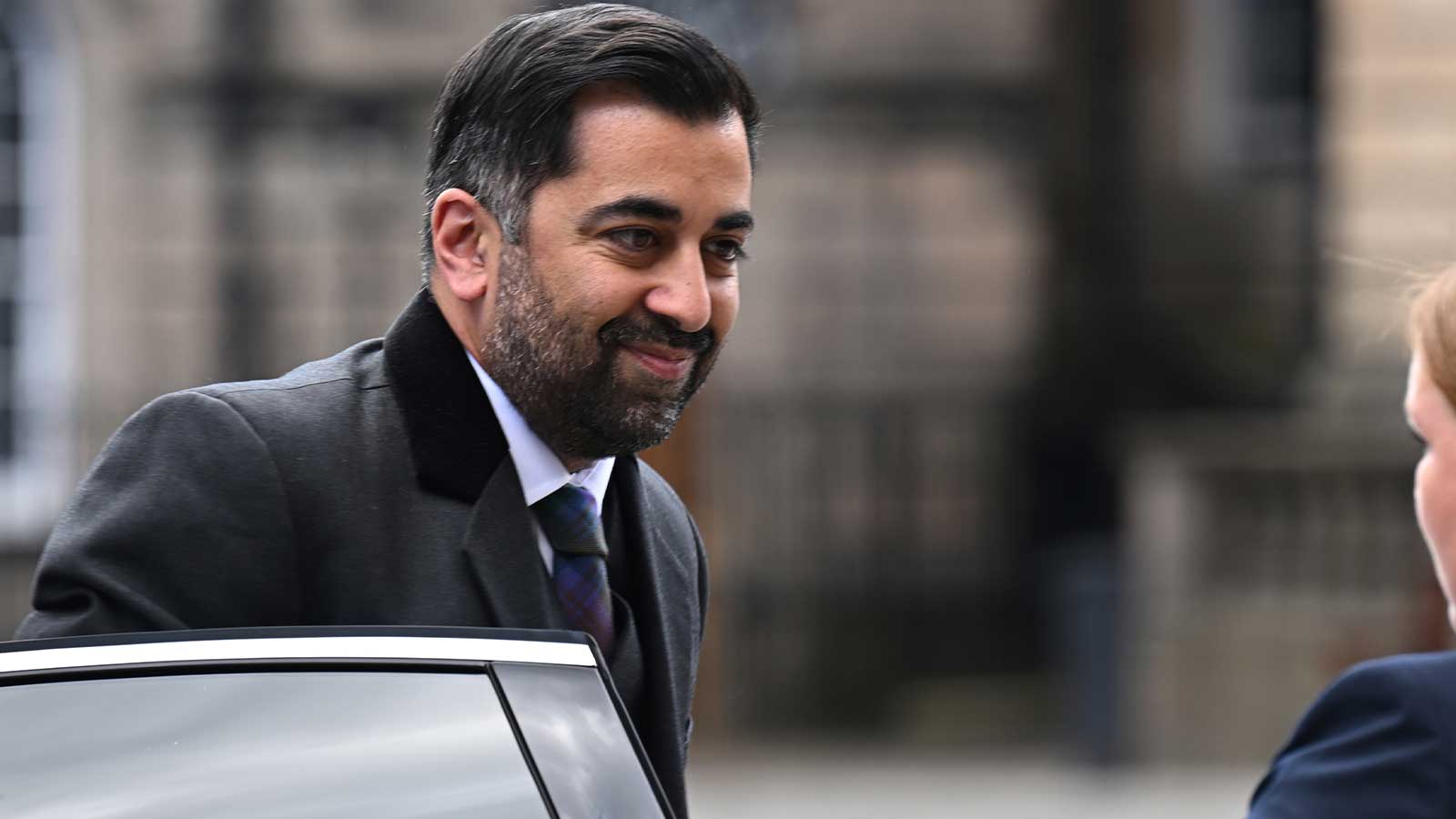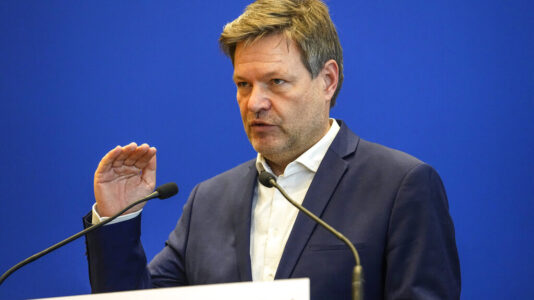Scotland’s far-left First Minister Humza Yousaf has resigned from office after just over a year in the job.
In a statement on Monday outside Bute House in Edinburgh, the first minister’s official residence, Yousaf announced he would be stepping down after ending a power-sharing deal with the Greens made his position untenable ahead of a no-confidence vote in his leadership later this week.
“While a route through this week’s motion of no-confidence was absolutely possible, I am not willing to trade my values and principles or do deals with whomever simply for retaining power. Therefore, after spending the weekend reflecting on what is best for my party, for the government, and for the country I lead, I’ve concluded that repairing our relationship across the political divide can only be done with someone else at the helm,” he said.
“I have, therefore, informed the SNP’s national secretary of my intention to stand down as party leader and asked that she commences a leadership contest for my replacement as soon as possible.”
He announced he would be continuing as first minister until his successor is selected.
It is perhaps a case of Yousaf jumping before he was pushed amid reports he was unlikely to survive a no-confidence vote tabled against him in the Scottish parliament. The former first minister would have needed at least one vote from opposition lawmakers to continue in office.
His premiership had been under threat after a power-sharing deal with the Greens fell apart over climate and trans rows. The governing SNP recently ditched climate targets agreed on with the Greens and halted the prescription of puberty blockers for minors.
Green Party co-leader Patrick Harvie had accused the SNP of “selling out future generations” on the climate U-turn and claimed the decision on puberty blockers was a slap in the face for young trans people who would now be unable to get the controversial treatment.
Yousaf only assumed the role after Nicola Sturgeon resigned in March last year following allegations of financial impropriety. She was subsequently arrested in June last year in connection with the embezzlement of funds from her governing party, and earlier this month her husband Peter Murrell, the party’s former chief executive, was charged over the funding scandal.
A controversial figure in Scottish politics, Yousaf, who had never been elected to the role of first minister and became the first Muslim to assume the position, will be remembered by many for his infamous speech in Holyrood during his time as justice secretary when he embarked on an apparent anti-White tirade, complaining that too many top jobs in the country were held by White people.
“Why are we so surprised [about institutional racism] when the most senior positions in Scotland are filled almost exclusively by people who are White?” Yousaf said back in 2020.
“Take my portfolio, for example. The Lord President is White, the Lord Justice Clerk is White, every High Court judge is White, the Lord Advocate is White, the Solicitor General is White, the chief constable is White, every deputy chief constable is White, every assistant chief constable is White, the head of the Law Society is White, the head of the Faculty of Advocates is White and every prison governor is White.
“That is not the case only in justice. The chief medical officer is White, the chief nursing officer is White, the chief veterinary officer is White, the chief social work adviser is White, and almost every trade union in the country is headed by White people. In the Scottish Government, every director general is White. Every chair of every public body is White. That is not good enough.”
According to the latest report from Audit Scotland, 96 percent of the country is White.
Yousaf will also be remembered for the introduction of Scotland’s controversial hate crime law during his time in office, which opponents said was a crackdown on free speech. Around 8,000 hate crimes were reported to the Scottish authorities in the first week of the new law coming into force on April 1; however, over 3,000 of these were reportedly complaints about the former first minister himself regarding the aforementioned speech.
Yousaf was also overseeing further draconian laws relating to gender ideology, which would result in Scottish parents being potentially criminally liable if they refuse to allow their children to change their gender.
The proposed legislation would criminalize parents who refuse to engage in their children’s desire to not just undergo gender transitions but to identify as another gender by, for example, dressing as the opposite gender.






